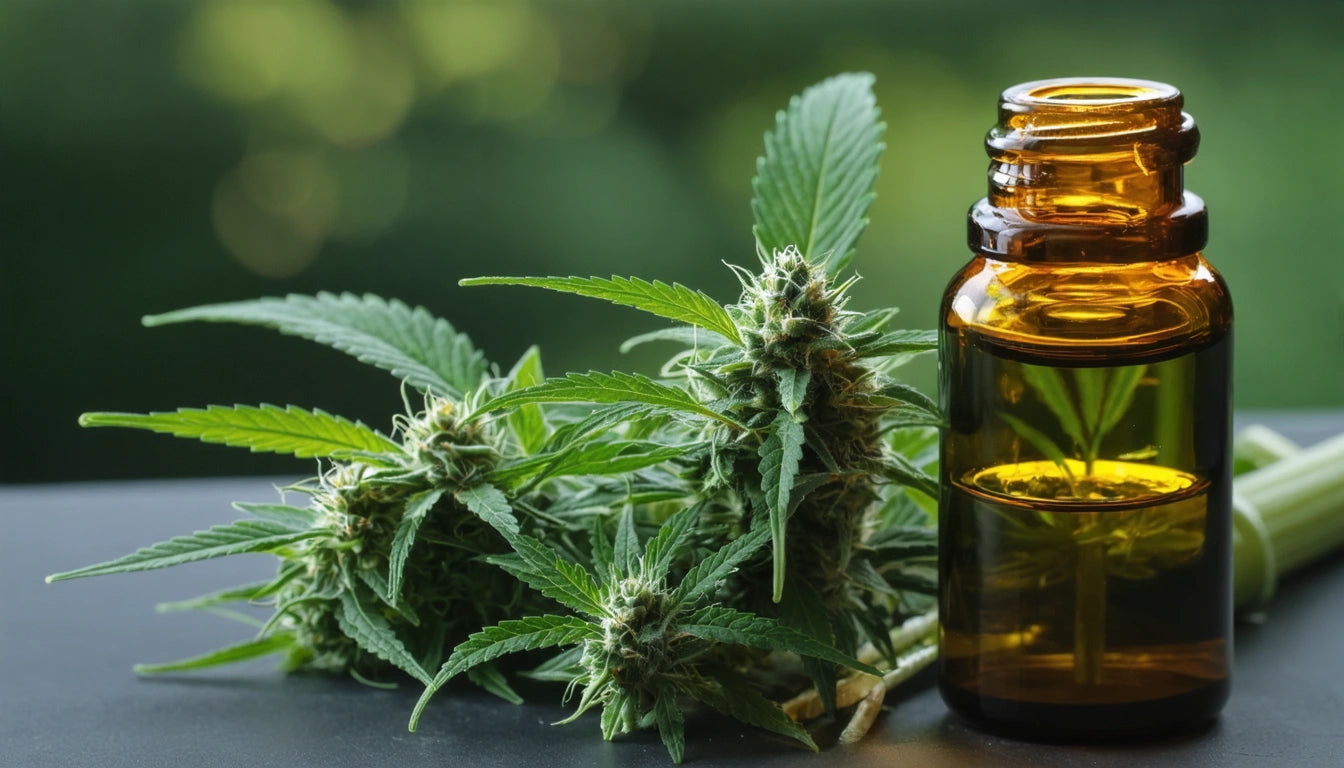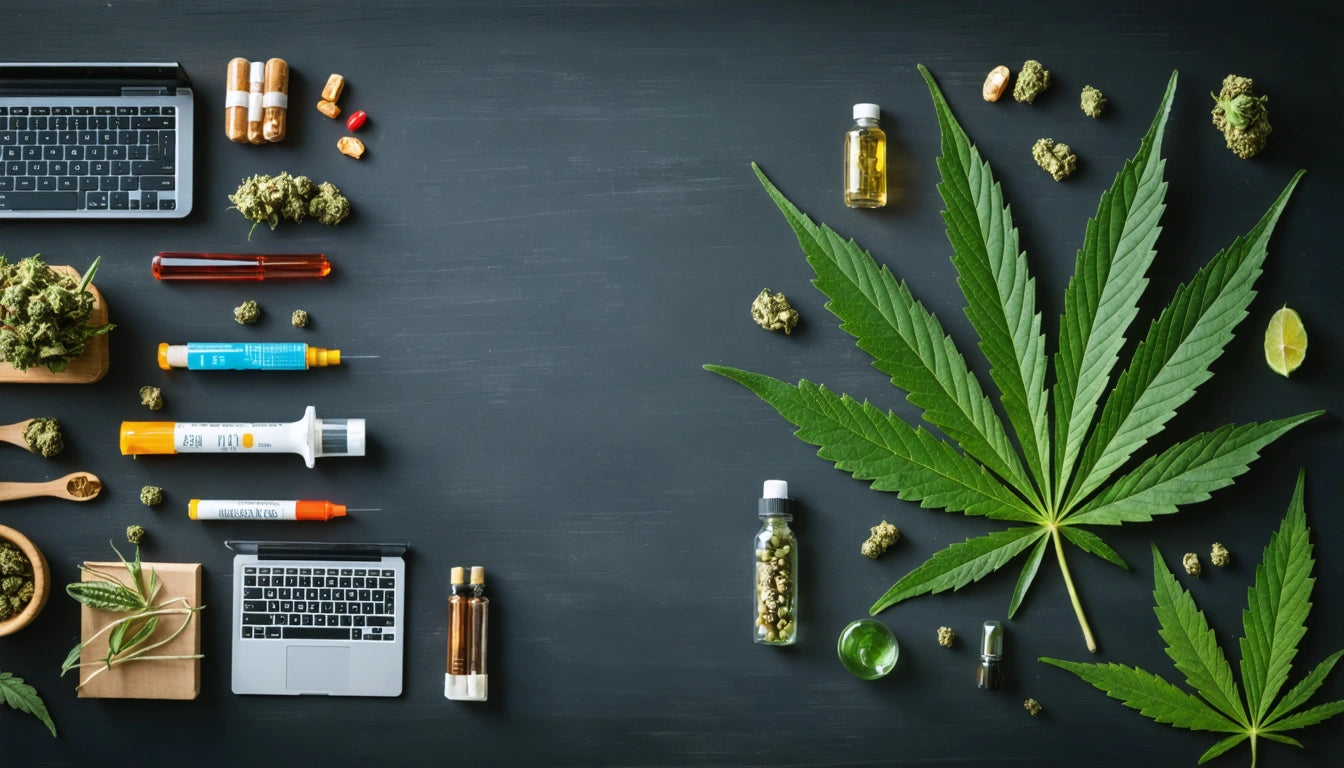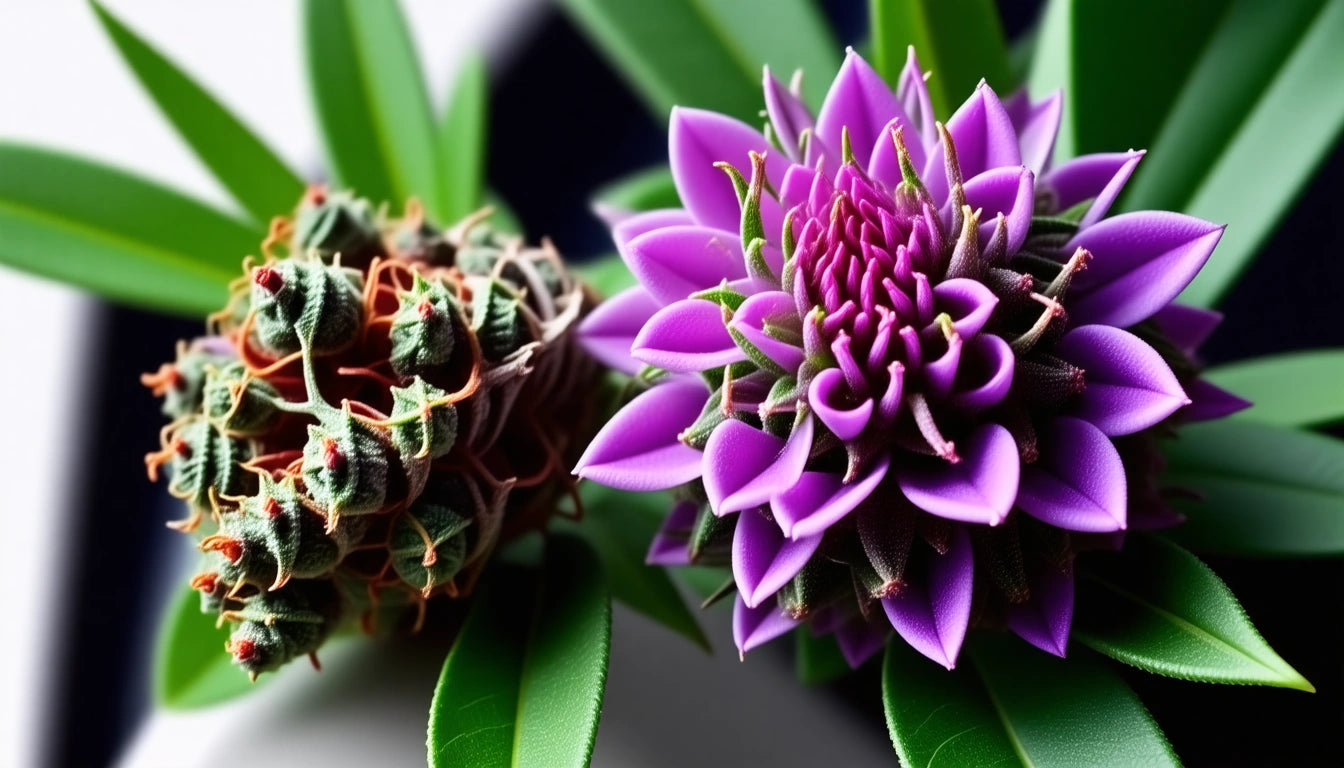Table of Contents
Can Cannabis Tinctures and Weed Help with Tinnitus and Cause a High?
Tinnitus affects millions of people worldwide, causing persistent ringing, buzzing, or hissing sounds in the ears. With conventional treatments often providing limited relief, many sufferers are exploring alternative options, including cannabis products. This guide examines whether cannabis tinctures get you high and if weed can help manage tinnitus symptoms.
Understanding Cannabis Tinctures: Composition and Effects
Cannabis tinctures are liquid extracts created by soaking cannabis flowers in alcohol or glycerin to draw out cannabinoids and terpenes. Understanding cannabis tinctures is essential before using them for any health condition.
Tinctures typically contain varying ratios of cannabinoids, primarily THC (tetrahydrocannabinol) and CBD (cannabidiol). THC is the primary psychoactive compound responsible for the "high" sensation, while CBD offers potential therapeutic benefits without intoxication.
Key Components in Cannabis Tinctures
- Cannabinoids (THC, CBD, CBN, CBG)
- Terpenes (aromatic compounds that may enhance effects)
- Carrier base (alcohol, glycerin, or oil)
- Optional additives (flavorings or other herbs)
The extraction process concentrates these compounds, making tinctures potent despite their small serving size. Proper storage in dark, airtight containers helps maintain potency and extend shelf life, similar to how humidity control packs preserve cannabis quality by maintaining optimal moisture levels.
Do Cannabis Tinctures Get You High? Exploring Psychoactive Effects
The short answer is: it depends on the THC content. Tinctures containing significant amounts of THC (typically above 0.3%) can indeed produce psychoactive effects or a "high" sensation. However, several factors influence the intensity of these effects:
Factors Affecting the High from Tinctures
- THC concentration (higher percentages produce stronger effects)
- Dosage amount (measured in drops or milliliters)
- Individual tolerance and metabolism
- Consumption method (sublingual vs. ingested)
- Presence of other cannabinoids (especially CBD, which can moderate THC effects)
When placed under the tongue (sublingual administration), tinctures can take effect within 15-45 minutes as they absorb directly into the bloodstream. When swallowed, they function more like edibles, with effects taking 45-90 minutes to manifest but potentially lasting longer. Understanding how cannabis affects your system helps set appropriate expectations.
The Cannabis-Tinnitus Connection: What Research Shows
The relationship between cannabis and tinnitus is complex and still being researched. Current evidence presents a mixed picture:
Potential Benefits
Some users report that cannabis, particularly CBD-rich products, helps reduce the perceived intensity of tinnitus. This may work through several mechanisms:
- Reducing anxiety and stress that can worsen tinnitus perception
- Promoting better sleep, which can indirectly improve tinnitus symptoms
- Anti-inflammatory effects that might address underlying causes
- Potential modulation of neural activity in auditory pathways
These benefits align with how cannabis helps with other neurological conditions like migraines, which share some underlying mechanisms with tinnitus.
Potential Concerns
Conversely, some research suggests cannabis might temporarily worsen tinnitus in certain individuals:
- THC can alter neural activity in ways that might increase auditory sensitivity
- Some users report heightened awareness of tinnitus when high
- Individual responses vary significantly based on unique neurochemistry
The current scientific consensus is that more research is needed to definitively establish whether cannabis helps with tinnitus. Individual experiences remain highly variable.
Effective Usage Methods for Potential Tinnitus Relief
For those considering cannabis tinctures for tinnitus, these approaches may maximize potential benefits while minimizing unwanted effects:
Dosing Strategies
- Start with low doses (2-5mg THC or 5-10mg CBD) and gradually increase
- Consider CBD-dominant formulations with minimal THC to avoid intoxication
- Document effects in a symptom journal to identify optimal dosing
- Maintain consistent timing of doses relative to tinnitus flare-ups
Learning proper tincture administration techniques ensures more predictable results. Sublingual application generally provides faster, more consistent effects compared to swallowing the tincture.
Product Selection
When selecting a tincture for tinnitus, consider:
- Full-spectrum products containing multiple cannabinoids and terpenes
- Products with verified lab testing for potency and purity
- Tinctures with specific terpene profiles (like linalool or myrcene) that promote relaxation
- Alcohol-free options if sensitivity is a concern
Understanding how different cannabis components affect your experience can help in selecting the most appropriate product for your specific symptoms.
Important Considerations and Future Research Directions
Before using cannabis for tinnitus, consider these important factors:
- Consult healthcare providers, especially if taking other medications
- Be aware of potential drug interactions with existing treatments
- Consider legal status in your jurisdiction
- Evaluate potential impacts on daily activities, especially if using THC-containing products
- Recognize that effects may vary over time as tolerance develops
The relationship between cannabis and brain chemistry is complex, affecting how individuals might respond to cannabis-based tinnitus treatments.
Future research will likely provide clearer guidance on specific cannabinoid ratios, delivery methods, and dosing protocols most effective for tinnitus. Until then, a cautious, personalized approach remains prudent for those exploring cannabis as a potential tinnitus management tool.
While cannabis tinctures may offer relief for some tinnitus sufferers, they represent just one approach in a comprehensive management strategy that might include sound therapy, stress reduction, and addressing underlying health conditions.











Leave a comment
All comments are moderated before being published.
This site is protected by hCaptcha and the hCaptcha Privacy Policy and Terms of Service apply.